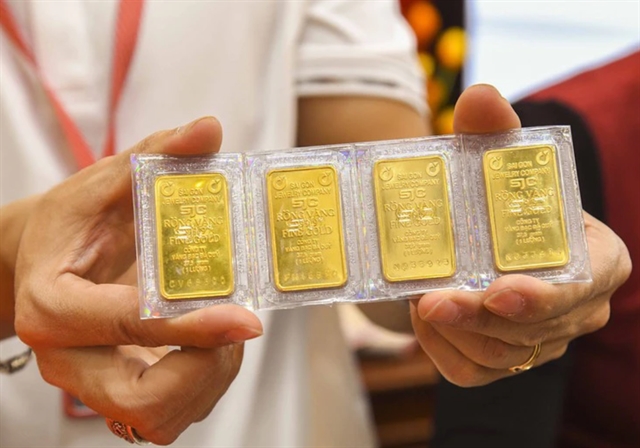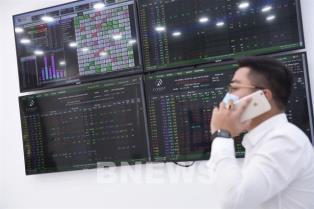The policy move has significant expectations, though its implementation demands careful phasing and robust infrastructure.

HÀ NỘI — Amid the persistent volatility in Việt Nam's domestic gold market and large gaps between local and international prices, the formation of a national gold exchange is gaining traction as a critical structural reform.
According to industry experts and financial institutions, the policy move has significant expectations, though its implementation demands careful phasing and robust infrastructure.
Prices of gold in Việt Nam have surged and corrected rapidly in recent months, reflecting a market out of sync with global benchmarks.
Nguyễn Đức Thái Hân, deputy general director of Asia Commercial Joint Stock Bank, pointed to the urgent need for a transparent and regulated platform.
"In the current context, the establishment of a gold exchange is both necessary and urgent," he said.
"The objective is to fully transparentise all imported gold that is traded, sold and introduced into production."
Hân advocates beginning with a focus on physical gold and standardised imported bullion, such as one-kilogram gold bars under international standards, and deferring trading of more popular domestic bars like SJC brand in the early phase.
"This is a sure, step-by-step move before transitioning into more complex products," he added.
Meanwhile, at the securities services front, Nguyễn Thị Thu Hiền, CEO of Techcombank Securities (TCBS), described the exchange initiative as a strategic policy instrument that would "unlock dormant gold resources in the public" and reduce asymmetric-information-led price spreads.
"A gold exchange is not only a new investment channel but also a modern tool for government regulation, shifting from administrative management to a market-based mechanism," she said.
Hiền further proposed the early adoption of blockchain technology to record every purchase and sale transaction in real time, ensuring traceability and full oversight.
She said: "Each trade will be logged like a node in the system, enabling the central bank to monitor the total market scale. At the same time, information security and asset protection must meet the standards of major financial exchanges."
Despite strong support, regulators and market participants underscore that the initiative must be rolled out with due caution.
The Foreign Exchange Management Department, under the State Bank of Vietnam (SBV), reiterated that gold trading remains a conditional business activity under the Investment Law and must adhere to principles of safety, transparency and effectiveness.
However, challenges remain.
Việt Nam is not a gold-producing country, and from 2014 to 2024, the SBV did not permit gold imports in order to safeguard foreign-exchange reserves, meaning domestic supply remains constrained.
In the 2014-24 period, the SBV did not license gold imports, hence domestic supply is still limited, and current conditions do not yet permit the formation of a large-scale exchange.
In addition, Việt Nam lacks centralised vaulting infrastructure and a dedicated gold-certification centre, both of which are prerequisites for the secure operation of a large-scale exchange.
Historically, self-organised gold trading platforms in 2006–2010, which used financial leverage, led to significant risks for both gold and broader financial markets.
Under the plan, the gold exchange will be introduced in three phases beginning with physical gold trading, then moving to gold bars and eventually to gold-account and derivative products.
Phase one is expected to last approximately two years, focusing initially on imported bullion. Phases two and three will expand the product set as capacity builds.
The initiative is aligned with the Government's broader agenda of modernising Việt Nam's financial market.
Prime Minister Phạm Minh Chính recently said that in 2026 the legal framework will be completed to establish integrated markets for finance, gold and real estate. The gold exchange may thus become a key part of Việt Nam's market-modernisation roadmap. — BIZHUB/VNS





